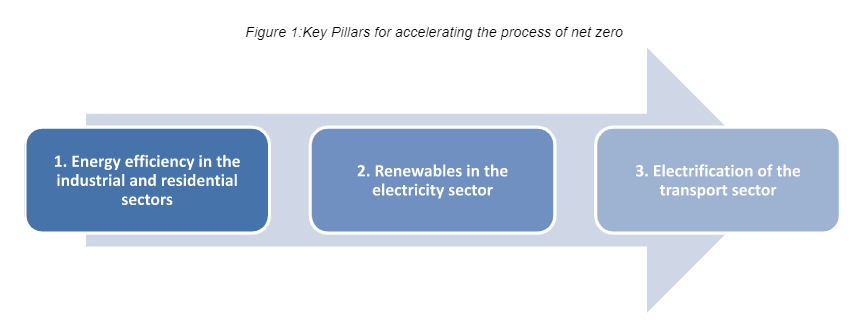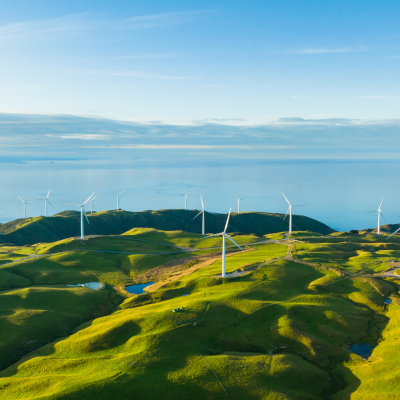Indonesia, after declaring its independence in 1945, has been successful in achieving significant economic development. It has now become the seventh-largest economy, the 12th-largest energy consumer and one of the largest coal exporters. However, it no longer exports oil. Indonesia’s economy is dependent on fossil fuels, wherein coal and natural gas exports account for only 20% of net exported goods. With the increase in energy demand, energy emissions have also increased, making it the world’s ninth-largest emitter of carbon dioxide (emitted 600m tonnes of carbon dioxide in 2021). Indonesia’s population is unevenly spread; 60% of its population lives on the main island of Java which accounts for 75% of electricity consumption. The country’s GDP is expected to grow by 5% over 2025-40, leading to a rise in energy demand (as it is directly related to growth in GDP).

Indonesia can only achieve its ambitious target of net-zero emissions by 2060 if it focuses on economic diversification and development through technology innovation and leveraging clean energy technologies. This transition through technological advancement will be key in transforming Indonesia into an advanced economy by 2045. To supplement this, Indonesia has come up with the National Energy Plan 2014, which targets a primary energy mix of 23% new and renewable energy by 2025 and 31% by 2030. The objective of the plan is to help Indonesia achieve economic development, energy independence and energy security. Therefore, the pillars for accelerating the process of net zero for the country are i) energy efficiency in the industrial and residential sectors, ii) renewables in the electricity sector and iii) electrification of the transport sector.

The industrial and residential sectors will likely witness rapid growth by 2060, driven by demand from an increased amount of equipment for production in factories and high demand for air conditioners and residential housing infrastructure, respectively. Furthermore, pricing and subsidy reforms in energy policies would boost the use of efficient energy and increase savings on energy bills per household. Moreover, the use of renewables, such as solar PV and wind, in the electricity sector would help achieve net-zero targets, especially if the country implements policy reforms and prices of renewables become competitive with coal and natural gas.
These factors, as well as the use of other clean energy technologies (such as hydrogen and hydrogen-based fuels and nuclear power, electrification of some industrial processes, and carbon capture, utilisation, and storage), can help accelerate the decarbonisation process. However, the deployment of such technologies requires innovation, long-term planning, large investments, international cooperation, and financial support. Indonesia invests USD 20bn-25bn annually in the energy sector, which is likely to increase in the future. In addition, investment in renewable energy, grids, energy efficiency and electrification of transport is likely to increase every year to provide impetus to policy reforms.

The transition to clean energy technologies will strengthen Indonesia’s energy security and make it self-reliant; the country spent around USD25bn on oil imports in 2021, and net imports of oil and gas are likely to increase to USD100bn by 2025. It is evident that investment in clean energy technologies is less than the amount invested in imports. However, the initial investment in clean energy technologies could be higher, but operational and maintenance costs are lower, making it affordable.
85% of Indonesia’s coal exports go to countries with net-zero targets, indicating that long-term exports would be interrupted in the future. Moreover, Indonesia is the largest producer of nickel and the second-largest producer of tin, contributing significantly to clean energy technologies. This would also bring in new opportunities to diversify its economy. However, the country can only benefit from this if it engages in activities along the value chain of clean energy technologies.
Indonesia’s economy is growing rapidly and is swiftly transforming from a rural to an urban one. The country has substantial opportunities to help accelerate the process of the energy transition, in line with its rapidly growing economy. With the abundance of sources of PV, wind, hydropower, geothermal, and bioenergy resources, these will lay the foundation for the energy transition, helping it achieve its net-zero targets by 2060.














